Care for your garden, your neighbors and your gardener by eliminating blowers
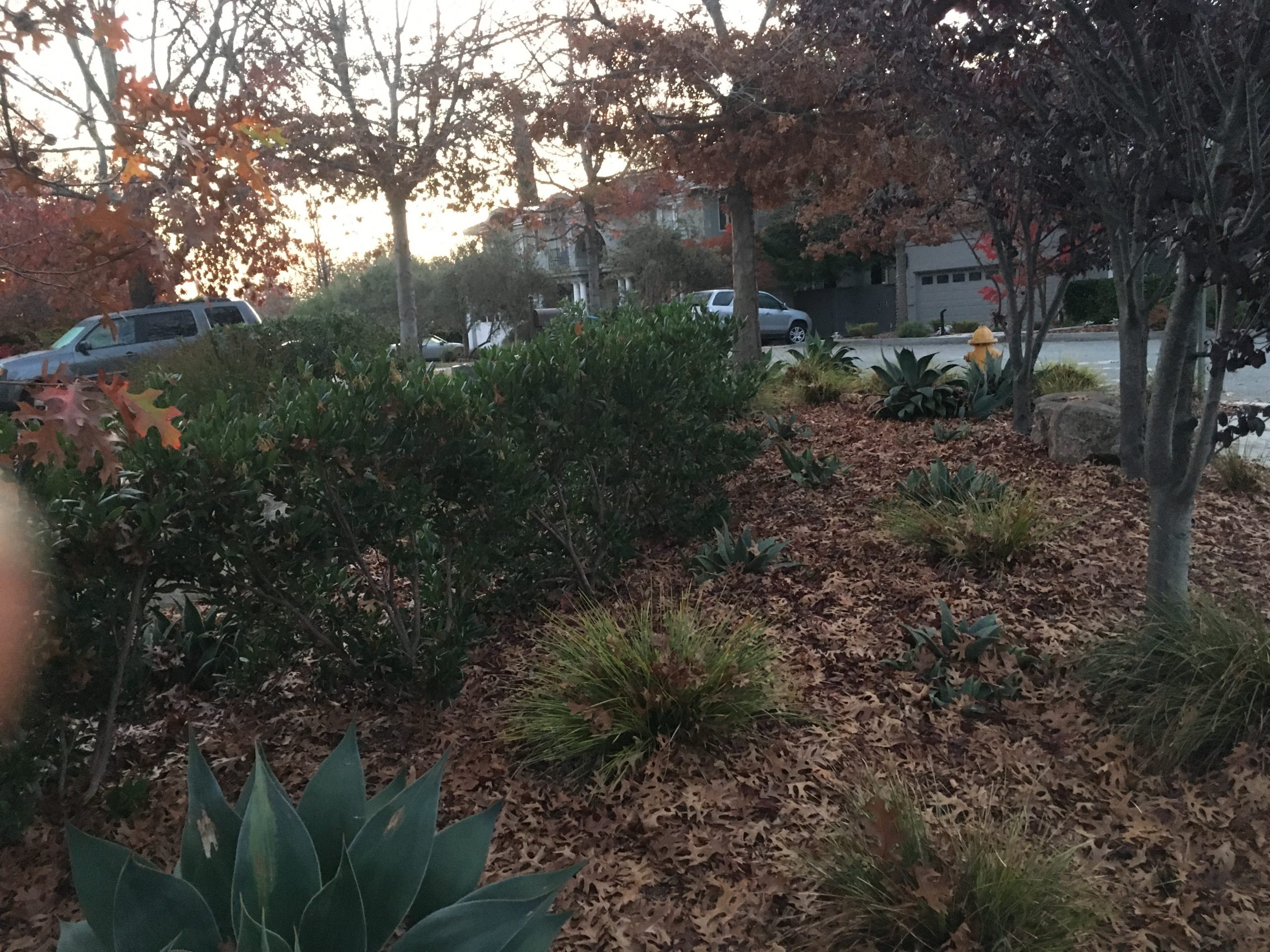
This attractive garden embraces leaves, and is maintained without sending noise and airborne pollution onto neighbors’ properties.

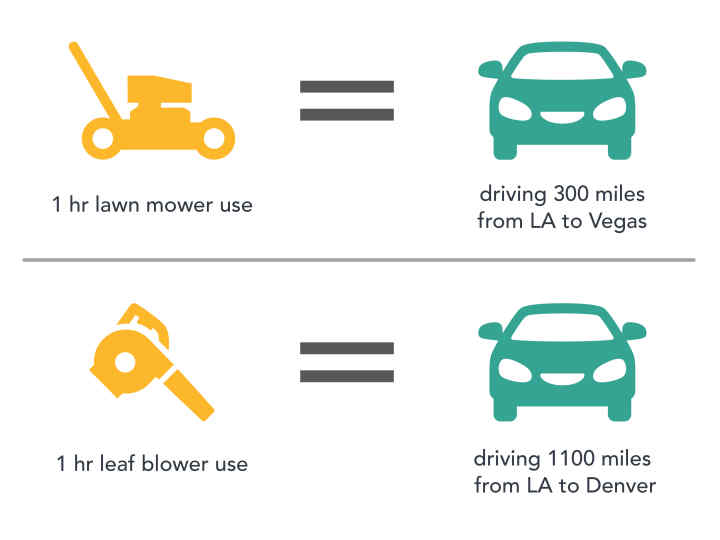
California Assembly Bill No. 1346 was signed by Governor Gavin Newsom on October 9, 2021. The bill aims to ban the sale of new gasoline-powered equipment under 25 gross horsepower by 2024, known as small off-road engines (“SOREs”) (Willon, 2021). SOREs are primarily used in gas-powered lawn equipment, such as leaf blowers, lawnmowers, chainsaws, and pressure washers, but also extend to generators and other emergency response equipment.
SOREs have proved to be a danger to the environment. In California, SOREs contribute more total nitrous oxide (NOx) and reactive organic gases (ROG) pollution than passenger cars do statewide (Id.). Operating a gas leaf blower for one hour can produce as many NOx+ROG emissions as driving 1,100 miles in a new passenger car.
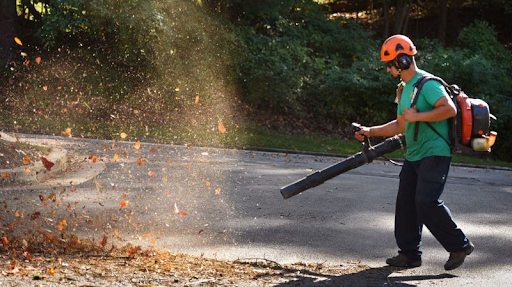
“Leaf blowers are too loud. This leaf blower machine is beyond a doubt the worst invention ever created.” —Baltimore Sun, Opinion (10/15/2017)
Gas Blower Emissions
Gas-powered leaf blowers are a significant source of pollutants. An article published by Washington University in St. Louis states, “Many consumer-grade blowers (and some mowers) use a two-stroke engine, which lacks an independent lubrication system, so fuel has to be mixed with oil. Burning oil and fuel emits a number of harmful toxic pollutants into the air, including carbon monoxide, nitrous oxides (which cause smog formation and acid rain), and hydrocarbons (a carcinogenic gas that also causes smog).”
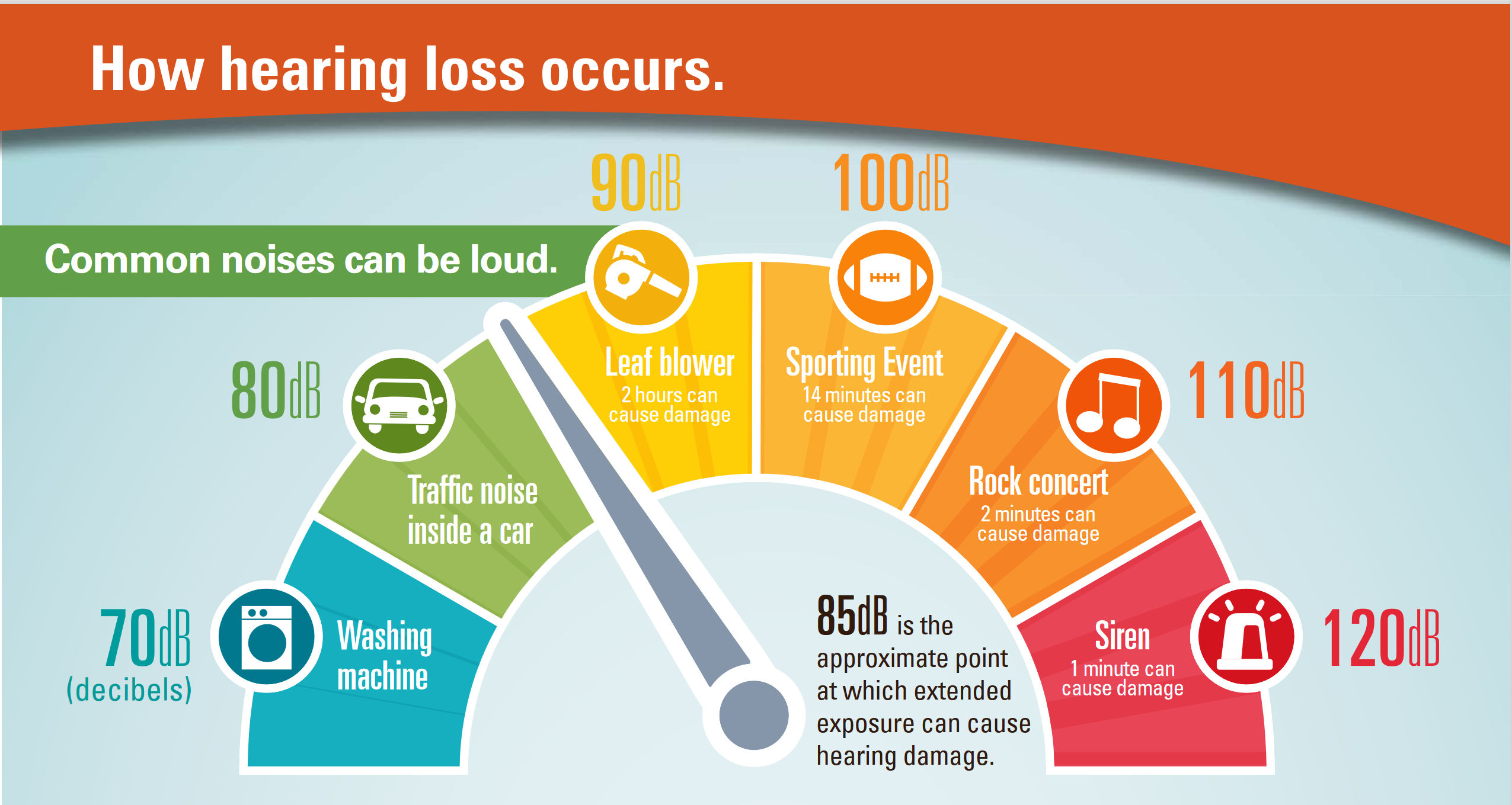
Blowers cause hearing loss after only a short exposure. Source: CDC
“The number of air pollutants emitted by gas-powered leaf blowers and lawnmowers exceed pollutant emissions of large automobiles, which are regulated to reduce and capture many air pollutants. A 2011 study showed that a leaf blower emits nearly 300 times the amount of air pollutants as a pickup truck,” writes the WU report.
Leaf blowers, lawnmowers, and other equipment with small gas-powered engines emit staggering levels of air pollution. These noisy machines are terribly disruptive to communities across California, and the workers who breathe in exhaust from this equipment day in and day out face disproportionate health risks, including asthma, cardiovascular disease, and cancer. To ensure an equitable transition to safer, cleaner equipment, we secured $30 million in the state budget to help small businesses purchase zero-emission replacements.
—California Assemblyman Marc Berman
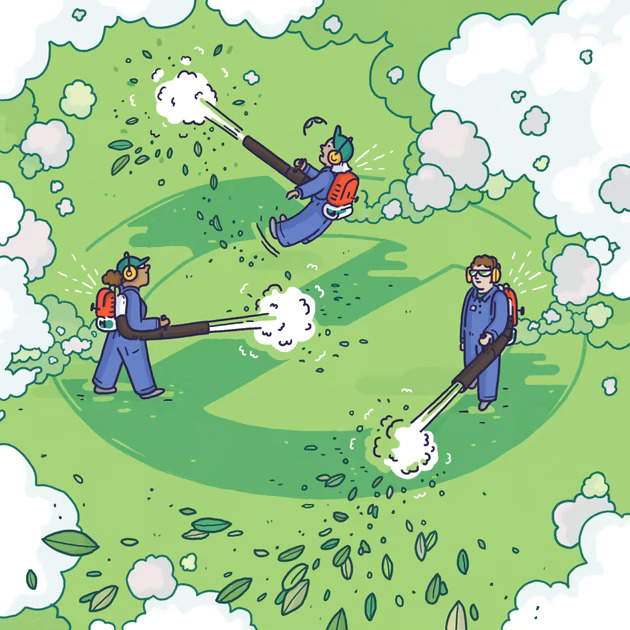
James Fallows, writer for The Atlantic writes about how a persistent group of citizens banned gas blowers in Washington, D.C.
Get Off My Lawn
